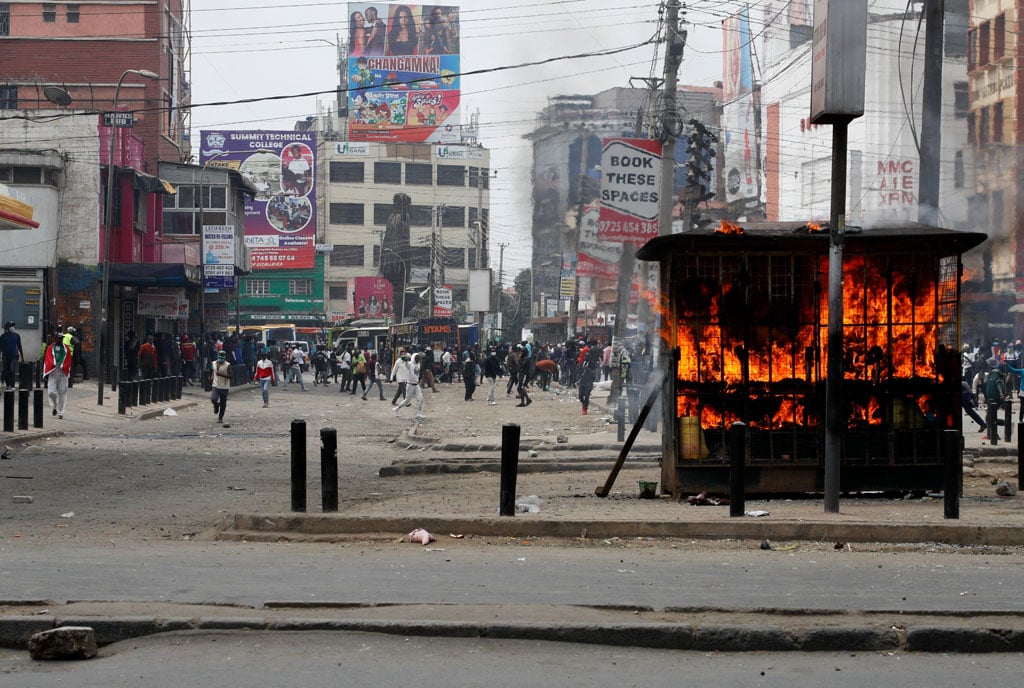Prime
Kiswahili teachers protest exclusion from ongoing recruitment exercise

Some of Kiswahili teachers subscribing to CHAKITAU after the press conference at St Mark's College Namagoma in Wakiso District on June , 2024. Photo | Noeline Nabukenya
What you need to know:
- Dr Mutungi said CHAKITAU has over 5,000 qualified teachers, but more than 2500 are still unemployed and are either at home idle or doing casual jobs.
Kiswahili teachers in Uganda under their umbrella body, Chama Cha Kiswahili Cha Taifa Uganda (CHAKITAU) have protested exclusion of their members in the on-going recruitment exercise.
In a May 28 circular issued by Dr Jane Egau-Okou on behalf of the Permanent Secretary Ministry of Education, Ms Ketty Lamaro, 598 administrative and teaching staff will be recruited in only 46 government-aided secondary schools this year.
The advertised slots are in subjects including English, Mathematics, Biology, Physics, History, Geography, Chemistry, Islamic Religious Education (IRE) or Christian Religious Education (CRE), Fine Art, Agriculture, and Technical Drawing and Computer.
The same circular ring-fenced 13 positions for sitting staff for each of the government-aided schools, of which, six teachers must be degree holders, five diploma, two administrators; one head teacher and one deputy head teacher and one senior accountant.
Dr Boaz Mutungi, the deputy president of CHAKITAU, said the government should swiftly change its current position on staff recruitment and include Kiswahili teachers among those to be recruited.
“This adjustment will ensure that we uphold our commitment to providing a holistic and inclusive education to our students,” he said as he addressed journalists at St. Mark’s College, Namagoma in Wakiso District on Monday.
The exclusion of Kiswahili, Dr Mutungi said, will hinder the development of the language which is considered as the second official national language after English in Uganda.
“We are confident that addressing this oversight will contribute significantly to the overall achievement of our national education objectives and subsequently, lead to socio-economic transformation of our people,” he explained.
Dr Mutungi said CHAKITAU has over 5,000 qualified teachers, but more than 2500 are still unemployed and are either at home idle or doing casual jobs.
Quoting data from Kyambogo University, Mr Innocent Agume, a Kiswahili lecturer at Kabale University, said over 8,000 primary school teachers who studied Kiswahili as a core subject between 2013 and 2021 are currently jobless.
“It is because the government is yet to integrate teaching and learning of Kiswahili in primary schools,” Mr Agume said.
Ms Caroline Kosaba, a teacher at Adelante Africa SS in Kakumiro District, said they studied Kiswahili hoping that the government would employ them, but priority is given to teachers of other subjects.
“We thought Kiswahili has been made compulsory and it was our time to shine but even the recently advertised jobs were as well given to diploma holders yet majority of us have degrees,” Ms Kosaba said.
Mr Denis Mugimba, the Spokesperson of Ministry of Education, said the ministry is unable to recruit Kiswahili teachers due to insufficient funds.
“For a starting school, the government has to pay 31 staff members, but because of limited resources, we are recruiting only 13 teachers. If we get more funding in the coming financial year 2024/2025 we will recruit the balance of 18 teachers in grant-aided schools,” he said.




